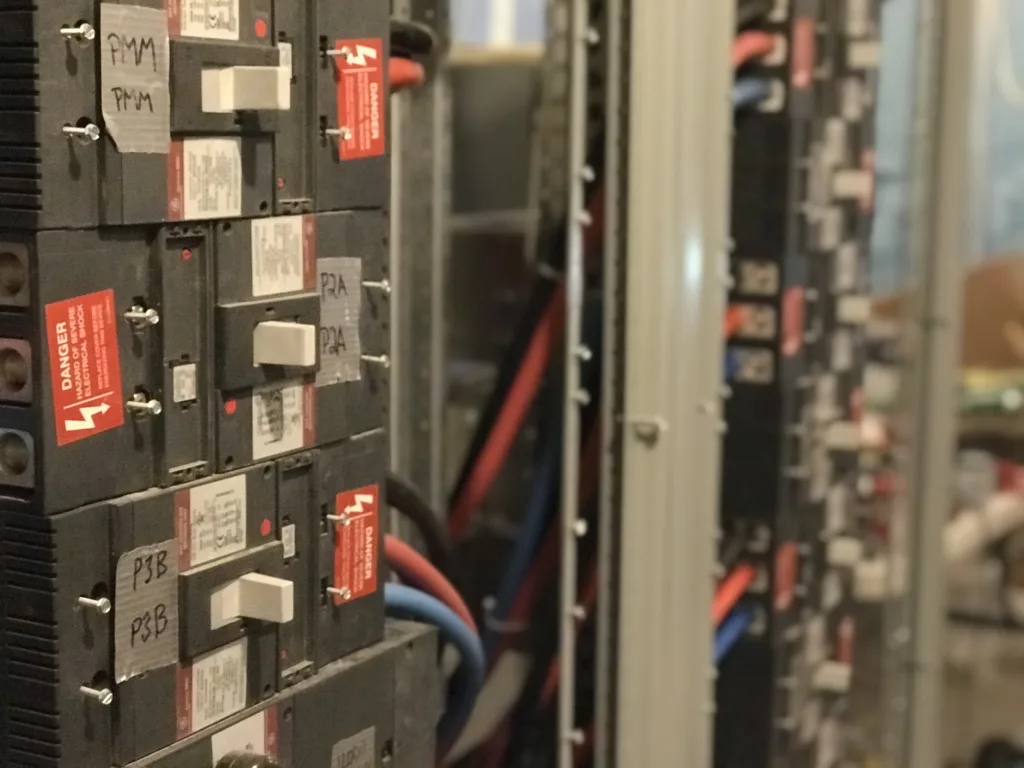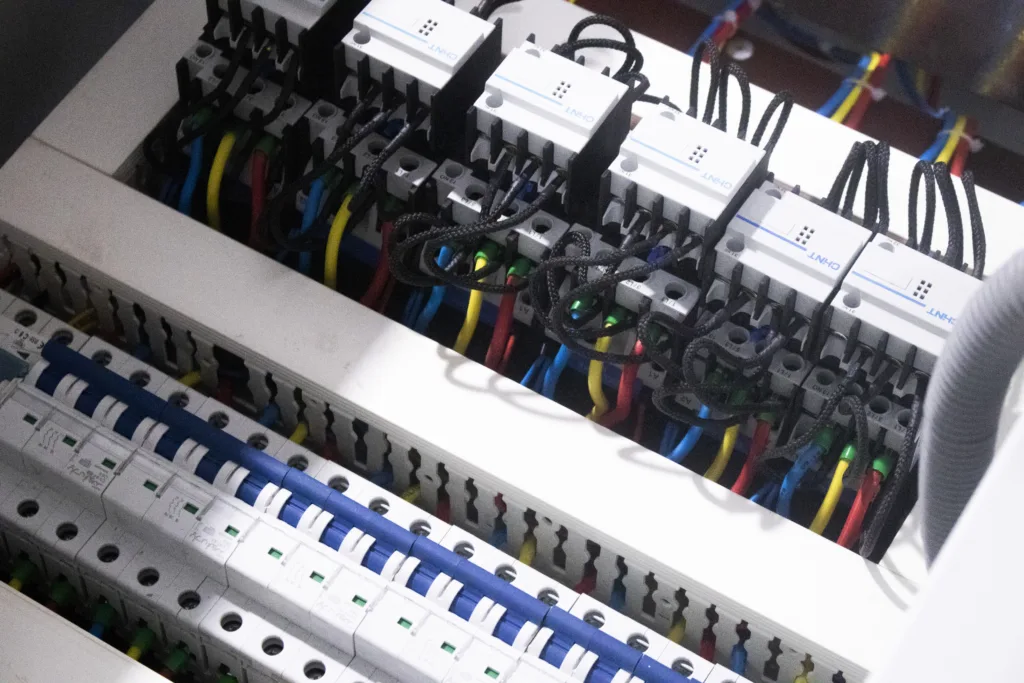TN-S is an earthing system that is commonly used in electrical installations. It is an arrangement where separate conductors for Protective Earth (PE) and Neutral are run to consumer loads from a site’s power supply, such as a generator or transformer. The PE and N conductors are separated in nearly all parts of the system and are only connected together at the supply itself.
The T in TN-S stands for Terre or Earth, and the N is Neutral. The S stands for Separate. This means that the Neutral and Earth wires are separate throughout the supply cable. The most common arrangement is a two-core cable (Live and Neutral) with a lead outer sheath (Earth).
The purpose of the TN-S system is to prvide a safe pathway for any electrical current that may escape from a circuit. The Protective Earth conductor is designed to carry this current away from the circuit and safely to the earth, preventing any potential hazards to people or equipment.
The TN-S system is considered to be one of the safest earthing systems, as it provides a direct path for current to flow to the earth. This is achieved by the use of separate PE and N conductors, which are connected together at the source of the power supply.
One of the major advantages of the TN-S system is that it is easy to install and maintain. The separate PE conductor makes it easy to identify and repair any faults in the system. It also ensures that the earth connection remains intact, even if the Neutral conductor becomes damaged or breaks.
Another advantage of the TN-S system is that it provides a low impedance path to the earth. This means that any electrical current that may escape from a circuit will be quickly and safely redirected to the earth, preventing any potential hazards.
The TN-S earthing system is an effective and safe method of providing an earth connection in electrical installations. It provides a direct pathway for electrical current to flow to the earth, ensuring that any potential hazards are prevented. It is easy to install and maintain, making it a popular choice for many applications.
What Is A TN-S System?
A TN-S system is an electrical arrangement used to supply power to consumer loads from a site’s power supply, such as a generator or transformer. In this system, separate conductors are used for Protective Earth (PE) and Neutral. The PE and N conductors are kept separate in most parts of the system and are only connected together at the supply itself. This helps to ensure that any fault currents are safely directed away from the system and into the ground, reducing the risk of electric shock and oher hazards. TN-S systems are widely used in both residential and commercial settings and are considered to be a safe and reliable way to supply power to electrical loads.

What Is TN-S TN-C?
TN-S and TN-C are two different types of electrical earthing or grounding systems used in electrical installations.
TN-S (Separate) is a system where the protective ground conductor is separate throughout the system. This means that the neutral and protective ground conductors are not combined, and a separate conductor is used for the ground connection.
On the other hand, TN-C (Combined) is a system where the neutral and protective ground conductors are combined in a single conductor throughout the system. This means that a single conductor is used for both the neutral and ground connection.
It is important to note that TN-C-S (Combined-Separate) is a hybrid system where the neutral and protective functions are combined in a single conductor in a part of the system, while in other parts they are separate.
TN-S, TN-C, and TN-C-S are thre different earthing or grounding systems used in electrical installations, each with their own advantages and disadvantages depending on the specific application and requirements.
What Does TNS Stand For Electrical?
TNS stands for Terre Neutral Separate. It is a type of electrical supply system used in the UK. In this system, the Earth and Neutral wires are separate throughout the supply cable, and the Live wire is connected to the Terre (Earth) at the point of supply. This system is commonly used in domestic and industrial installations to ensure safety and prevent electrical shocks. The TNS system is also known as the Protective Multiple Earthing (PME) system. It is a reliable and safe method of electrical supply and is widely used in the UK and other countries.
What Is The Difference Between TNS And TNCS?
The TNS and TNCS earthing systems are two distinct methods of earthing. The primary difference between the two is that in a TNS, there is a separate earth core that connects back to the substation, while in a TNCS, the earth and neutral are connected to the same core (CNE).
To elaborate further, the TNS system has separate conductors for the neutral and earth. The neutral conductor carries the return current from the load, while the earth conductor is solely responsible for provding a path for fault current to flow back to the substation. In contrast, the TNCS system combines the neutral and earth conductors into a single core, which is referred to as the combined neutral and earth (CNE).
The TNCS system is mainly used in areas with low fault current levels, while the TNS system is used in areas with higher fault current levels. Additionally, the TNCS system is more cost-effective and easier to install than the TNS system, but it is less safe in the event of a fault.
To sum up, TNS and TNCS are two distinct earthing systems that differ in how they connect the neutral and earth conductors. The TNS system has a separate earth conductor, while the TNCS system combines the neutral and earth conductors into a single core.

Conclusion
TN-S is a reliable and safe earthing system used in electrical installations. It provides a separate protective earth conductor to ensure the safety of consumers and equipment. The PE and N conductors are separated throughout the system, and only connected at the supply end. This arrangement minimizes the risk of electric shock and ensures proper functioning of electrical equipment. Compared to TN-C and TN-C-S earthing systems, TN-S offers greater protection and is preferred in many industrial and commercial settings. TN-S is a recommended option for ensuring safety and reliable electrical supply in various applications.
